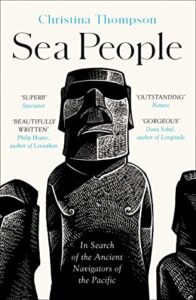 Black Water Sister, Zen Cho
Black Water Sister, Zen Cho
Black Water Sister follows the adventures of Jess, who was brought up in the US but whose family come from Malaysia, just as she and her family return to Malaysia for good. Her parents are a little bit hopeless, very much in need of her support, and she is reluctant to come out to them — knowing their likely response, and knowing that they need her — about her relationship with her girlfriend. Oh, and she’s hearing the voice of her dead grandmother, who says she’s a medium, and demands her help.
Jess is a little bit colourless, a little bit unformed, in a way that feels entirely intentional: she has yet to take her own steps in life, and instead lets events shape her. That makes her a slightly frustrating protagonist at times, because until the last quarter or so she kind of goes with the flow, and makes very few plans of her own. However, one thing that is very vivid is her sense of only half belonging, her feelings that are weirdly both familiarity and displacement. The fact that Malaysia is partly new to her (she’s visited before, but not lived there) helps ease the unfamiliar reader into it, even as there’s a lot to take in.
Jess’ grandmother, Ah Ma, is a delightful character — reminiscent in some ways of Mak Genggang in Zen Cho’s other work, and full of character. She’s perhaps the best thing about the story, driving it on, unreasonable and yet somehow likeable because of it.
One character I did not like was Jess’ girlfriend. That’s partly because she barely had any ‘screentime’, of course, but she also seemed very impatient with Jess’ world. Of course, we don’t get to see their history, or anything of their relationship when they’re face to face… but still, it seemed like she wanted Jess to be someone she wasn’t.
Anyway, the resolution of the story, the way things work out with the Black Water Sister herself, feels a little… more conventional, I suppose? Familiar, might be a better word? I was a little surprised that this world of ghosts and spirits who don’t act as European stories expect them to was in any way predictable to me. The ending works, but I suppose it feels a little pat, a little too easy after I’d been expecting something a bit harder to guess at.
All in all, though, it worked well for me, and I enjoyed it a lot.









